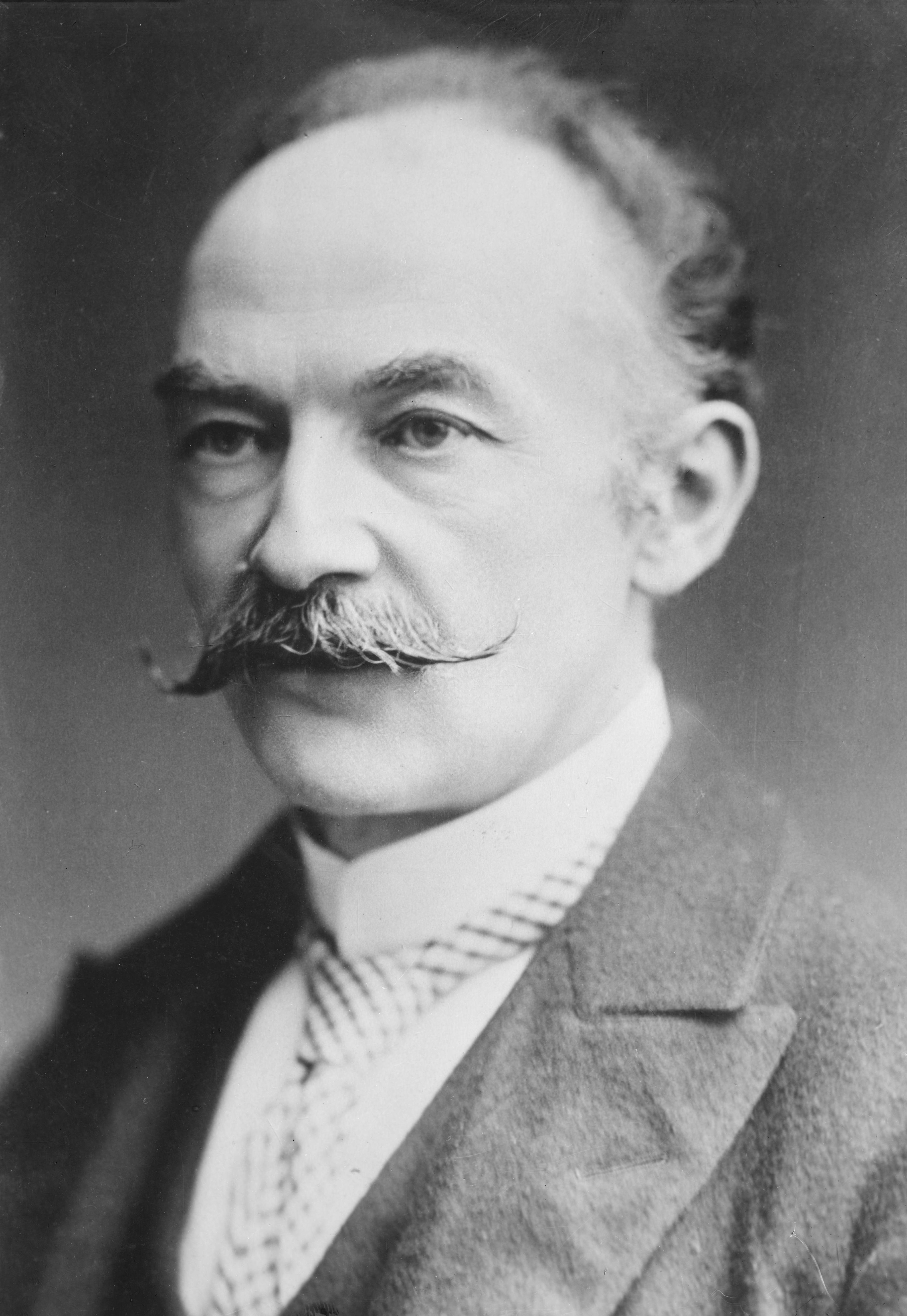“But some women only require an emergency to make them fit for one.”
Source: Far from the Madding Crowd
Thomas Hardy was an English novelist and poet. A Victorian realist in the tradition of George Eliot, he was influenced both in his novels and in his poetry by Romanticism, especially William Wordsworth. He was highly critical of much in Victorian society, especially on the declining status of rural people in Britain, such as those from his native South West England.
While Hardy wrote poetry throughout his life and regarded himself primarily as a poet, his first collection was not published until 1898. Initially, therefore, he gained fame as the author of novels such as Far from the Madding Crowd , The Mayor of Casterbridge , Tess of the d'Urbervilles , and Jude the Obscure . During his lifetime, Hardy's poetry was acclaimed by younger poets who viewed him as a mentor. After his death his poems were lauded by Ezra Pound, W. H. Auden and Philip Larkin.Many of his novels concern tragic characters struggling against their passions and social circumstances, and they are often set in the semi-fictional region of Wessex; initially based on the medieval Anglo-Saxon kingdom, Hardy's Wessex eventually came to include the counties of Dorset, Wiltshire, Somerset, Devon, Hampshire and much of Berkshire, in southwest and south central England. Two of his novels, Tess of the d'Urbervilles and Far from the Madding Crowd, were listed in the top 50 on the BBC's survey The Big Read.
Wikipedia

“But some women only require an emergency to make them fit for one.”
Source: Far from the Madding Crowd
“You ride well, but you don't kiss nicely at all.”
Source: A Pair of Blue Eyes
Source: Far from the Madding Crowd
“I am not a fool, you know, although I am a woman, and have my woman’s moments.”
Source: Far from the Madding Crowd
“I have felt lately, more and more, that my present way of living is bad in every respect.”
Source: Far from the Madding Crowd
Source: Tess of the D'Urbervilles
“So do flux and reflux--the rhythm of change--alternate and persist in everything under the sky.”
Source: Tess of the D'Urbervilles
Source: Far from the Madding Crowd
“Teach me to live, that I may dread
The grave as little as my bed.
Teach me to die…”
Source: Jude the Obscure
Jude the Obscure
Bk. V, ch. 3
The Return of the Native (1878)
“These purblind Doomsters had as readily strown
Blisses about my pilgrimage as pain.”
Hap http://www.poetry-online.org/hardy_hap.htm" (1866), lines 13-14, from Wessex Poems (1898)
Phase the Seventh: Fulfilment, ch. LIX (last lines)
Tess of the d'Urbervilles (1891)
Phase the Second: Maiden No More, ch. XIV
Tess of the d'Urbervilles (1891)
Pt. I, ch. IX
Jude the Obscure (1895)
“My argument is that War makes rattling good history; but Peace is poor reading.”
Pt. II, sc. v, Spirit Sinister
The Dynasts (1904–1908)
Pt. I, forescene, Shade of the Earth & Spirit of the Years
The Dynasts (1904–1908)
Bk. I, ch. 1
The Return of the Native (1878)
“All that blooth means heavy autumn work for him and his hands.”
Source: The Woodlanders (1887), Ch. XIX
Bk. III, ch. 2
The Return of the Native (1878)
" The Man He Killed http://www.illyria.com/hardyman.html" (1902), lines 17-20, from Time's Laughingstocks (1909)
Source: Far from the Madding Crowd (1874), Ch. 1
Pt. I, ch. IV
Jude the Obscure (1895)
“You calculated how to be uncalculating, and are natural by art!”
The Hand of Ethelberta (1876), ch. 20
" Waiting Both http://www.poetryconnection.net/poets/Thomas_Hardy/9302, lines 1-5, from Human Shows, Far Phantasies, Songs and Trifles (1925)
"The Convergence of the Twain" (Lines on the loss of the Titanic) http://rpo.library.utoronto.ca/poem/916.html (1912), lines 1-3, from Satires of Circumstance (1914)
" When I Set Out For Lyonnesse http://www.poetryconnection.net/poets/Thomas_Hardy/2736" (1870), lines 1-4, from Satires of Circumstance (1914)
Bk. I, ch. 1
The Return of the Native (1878)
Source: Far from the Madding Crowd (1874), Ch. 2
" Drummer Hodge http://www.st-andrews.ac.uk/~www_se/personal/pvm/HardyBWar/pracrit.html" (1899), lines 1-18, from Poems of the Past and Present (1901)